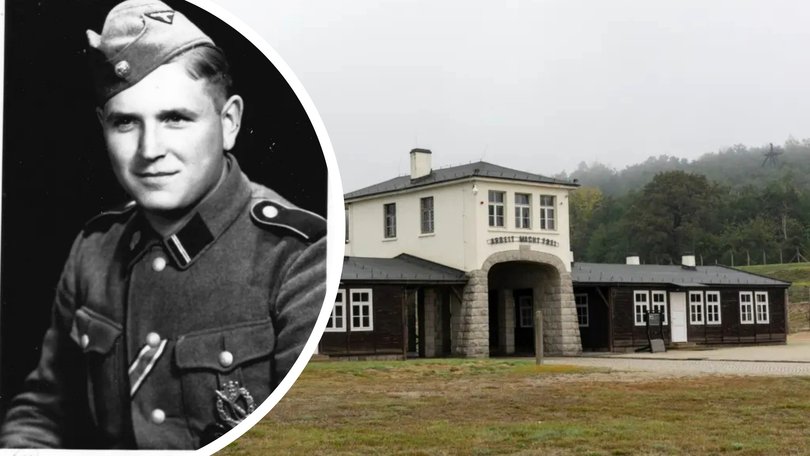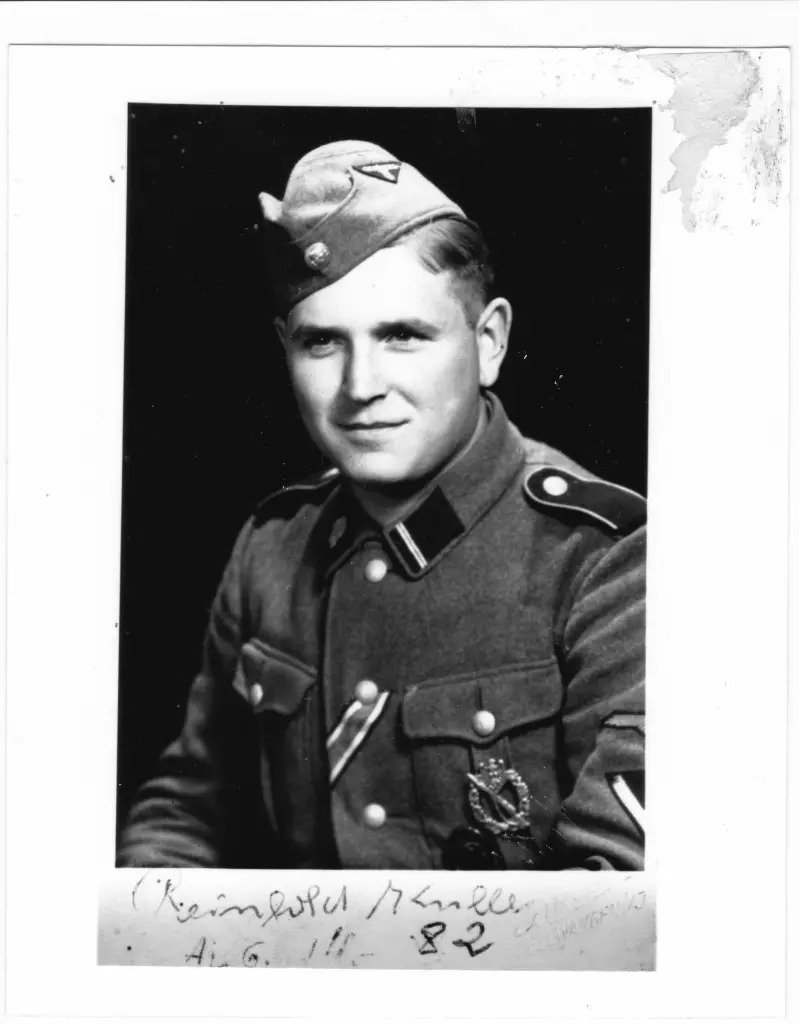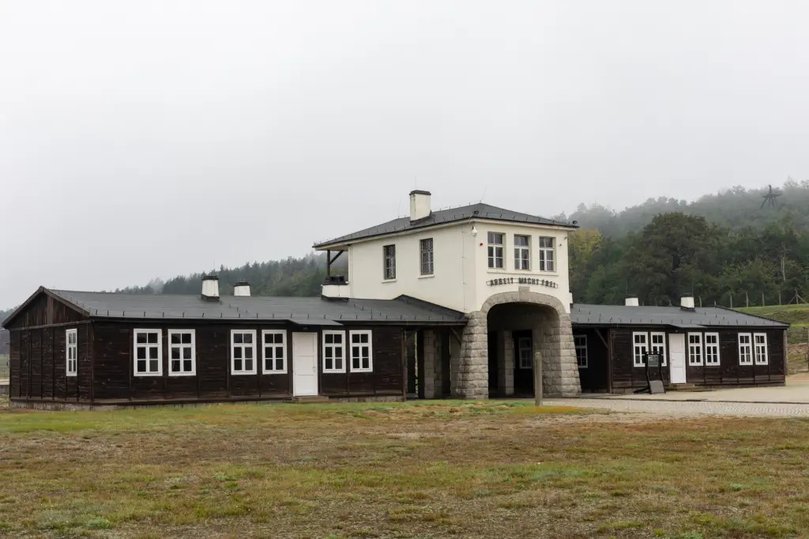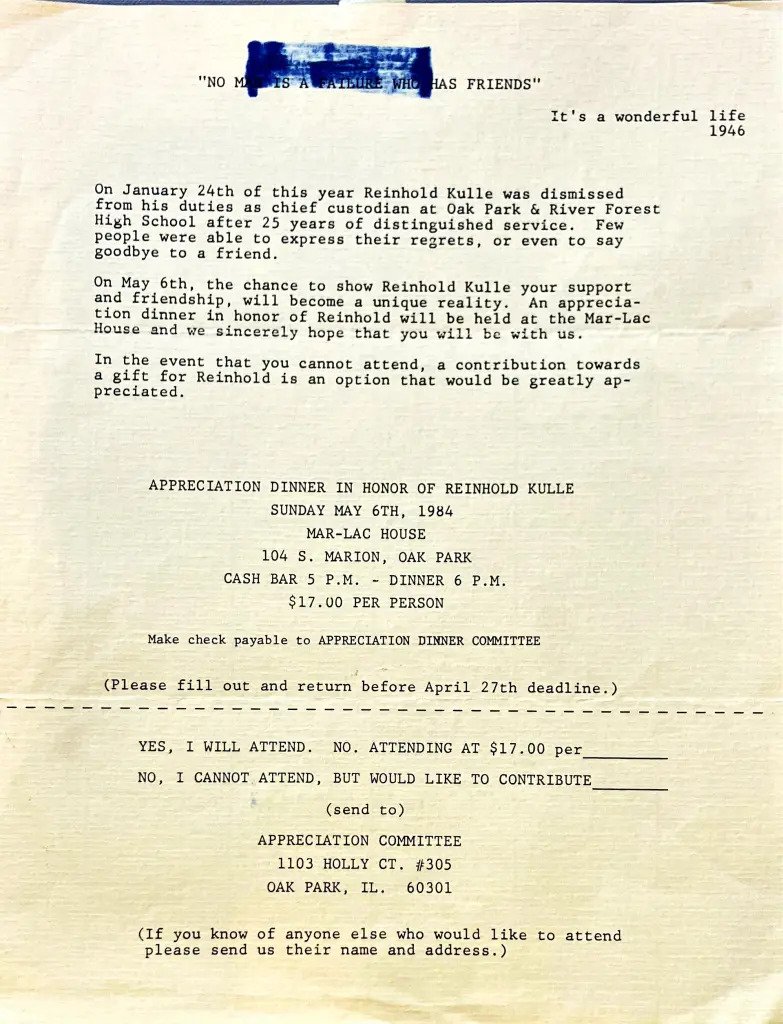Reinhold Kulle: The Nazi who lived for 30 years undetected in Chicago’s Oak Park

A former nazi who worked at a concentration camp during World War II somehow lived undetected in Chicago for 30 years.
Reinhold Kulle’s role in the atrocities committed at Gross-Rosen concentration camp, where tens of thousands of Jews perished, remained hidden until US investigators uncovered his past, the New York Post reports.
Kulle, a former nazi Waffen-SS officer who emigrated to the US with his family in 1957, had blended into his community, working as a custodian at Oak Park and River Forest High School.
Sign up to The Nightly's newsletters.
Get the first look at the digital newspaper, curated daily stories and breaking headlines delivered to your inbox.
By continuing you agree to our Terms and Privacy Policy.
He was promoted to chief night custodian in 1963, with colleagues and neighbours unaware of his involvement in nazi war crimes.
According to historian Michael Soffer’s book Our Nazi: An American Suburb’s Encounter with Evil, Kulle was a member of the Hitler Youth before joining the Waffen-SS in 1940.
After being injured in combat, he was transferred to Gross-Rosen, a concentration camp in his native Silesia.
The camp, intended as a labour camp, became a site of mass murder, where over 40,000 prisoners died under horrific conditions.
Soffer writes that Kulle played a crucial role in overseeing the construction of a crematorium as the camp became overcrowded.
By 1944, the camp housed more than 40,000 prisoners — far beyond its capacity of 13,000 — leading to unsanitary conditions that contributed to the high death toll.

After the war, Kulle escaped prosecution by faking his visa application under the US Displaced Persons Act of 1948, which allowed refugees to immigrate more easily.
He entered the US with his wife and children, settling in Oak Park, Illinois.
Kulle lived a quiet life in the suburbs, but by the early 1980s, US authorities began ramping up efforts to identify and expel former nazis living in the country.
In 1981, the Office of Special Investigations (OSI) investigated Kulle’s activities during the war. By 1982, investigators had gathered extensive evidence, including Kulle’s SS personnel file and photographs of him in uniform.
Kulle denied direct involvement in atrocities but admitted to lying on his visa application.
The Chicago Sun-Times broke the story in December 1982, with the revelations sparking outrage in the community.
Although some school faculty members supported Kulle, arguing that he had been a model employee.
Despite the divided opinions, Kulle was placed on terminal leave in January 1984.

A federal judge ordered his deportation later that year, though the decision was delayed until October 1987.
On October 26, 1987, exactly 30 years after he arrived in the US, Kulle was deported to West Germany.
He returned to his hometown of Lahr, where he lived quietly until he died in 2006.
Kulle never faced criminal charges, though his deportation ended his life in the US Soffer notes that he continued receiving a pension from the Illinois Metropolitan Retirement Fund until his death, still a free man despite his past as an SS officer involved in the nazi regime’s crimes against humanity.
